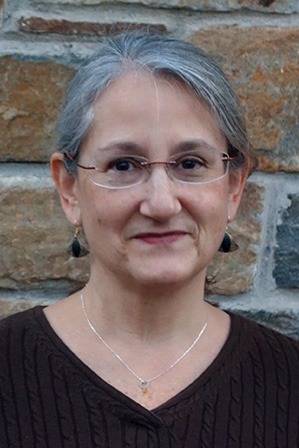Virtual Diplomacy in an Age of Disruption
Letter from the Editor
BY SHAWN DORMAN

As I write in mid-March, it’s been exactly a year since everything started to shut down in response to the COVID-19 pandemic spreading worldwide. Since then, our FSJ team has been working from Baltimore, Manitowoc, Fort Myers, Bogotá and Washington, D.C. Our Editorial Board meets on Zoom.
We’ve been lucky: Publications work lends itself to online collaboration and communication. We haven’t (yet) missed a magazine deadline or release date.
For Foreign Service life and work, the picture is more complicated and the adjustment to new pandemic realities more challenging. As always, diplomacy and development work has carried on, and with vaccinations moving quickly and a new administration at the helm that values diplomacy, the future begins to look brighter.
We decided it was time to look at what’s changed during the pandemic, and at the difficulties and the innovations that have come with the extreme disruption it has caused.
We did not coordinate with authors for a particular bottom-line conclusion from this focus, and yet one did emerge. A distinct thread runs through the articles: While virtual diplomacy and virtual engagement are possible and can be successful, and have even produced changes to keep, they are no substitute for being there, in person.
Foreign Service Officers Jessica Huaracayo (writing from Madrid) and Alexis Ludwig (writing from D.C.) start us off with “Can Diplomacy Be Done Virtually?” From observation and personal experience, they illustrate how “building relationships of trust—the coin of the diplomatic realm—depends on actual human contact.”
Commercial Officer Aileen Nandi (writing from New Delhi) describes how commercial work has adapted in a difficult business environment worldwide. FCS officers are playing an even more valuable role for the small and medium-sized U.S. companies seeking to do business abroad yet less able to travel.
Turning to “In-Person Exchanges, Interrupted,” former FSO and University of Montana Mansfield Center Executive Director Deena Mansour (writing from Missoula) explains that while some new online innovations will be maintained post-pandemic, no matter how sophisticated the platform or carefully crafted the content, electronic engagement cannot replace connecting face-to-face.
Then on to the personal. One common, if obvious, theme from the “life” side of the work-life equation is that transferring and parenting during the pandemic are no picnic. FS family member and FSJ Associate Editor Cameron Woodworth (writing from Bogotá) reports on “Transferring in a Time of Chaos” based on his own recent move and discussions with others.
FS family member and former FSJ Associate Editor Donna Scaramastra Gorman (writing from Moscow) describes the unique complications of “Pandemic Parenting,” particularly for moms.
After three tours overseas, FSO Kimberly Harmon (writing from Charleston) came “home” to the U.S. during the pandemic. In her inspiring journey, “My Reintroduction to America,” she finds meaning and community by helping others locally.
FSO Josh Glazeroff (writing from D.C.) speaks out about the need for “Resilience Leadership” and offers suggestions.
In this month’s feature, “Effective Public Diplomacy: Lessons from Tuk-Tam,” retired FSO Ken Moskowitz (writing from Tokyo) offers insights from his work with a Bulgarian nongovernmental organization.
FSO alum and former FSJ Editor in Chief Steven Alan Honley did the honors of writing our Appreciation of “A Truly Trustworthy Leader—George P. Shultz: 1920-2020.”
In our special Retirement Supplement, former head of the Retirement Office at State and AFSA Retiree VP John Naland flags “Twelve Retirement Pitfalls to Avoid” when planning for your post-FS life.
In the Reflection, “The Case of the Bungled Blacklist,” retired Foreign Commercial Service Officer Kevin Chambers submits a great case study on the value of FCS.
Don’t miss the AFSA officer columns, starting with Ambassador Eric Rubin’s President’s Views, “Taking Care of Our Colleagues—and Ourselves.”
Next month, look for a primer on Arctic diplomacy, including an interview with the U.S. Arctic coordinator and an op-ed from Senator Lisa Murkowski (R-Alaska).
Please keep the letters and submissions coming! Write to us at journal@afsa.org.

